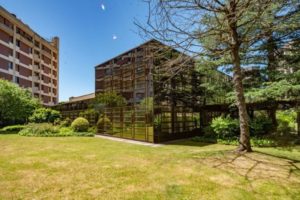The objective of active teaching as used at Harmonie School is to make the learner an actor in his or her own learning so that he or she can construct knowledge through research situations.
A bit of history
At the beginning of the 20th century, Adolphe Ferrière was one of the first to use the term active school in his publications. This was the basis of the Education nouvelle movement.
Freinet, who was part of this current, said that: “The normal way of acquisition is by no means observation, explanation and demonstration, the essential process of the school, but experimental trial and error, a natural and universal approach.
André Giordan would later say that “Learning is not a process of transmission […] but above all a process of transformation (of questions, of initial ideas, of the pupils’ habitual ways of reasoning)”.
The new education asserts the postulate that “we learn all the time, both inside and outside the classroom, we learn by reading books but also by talking to strangers, by watching a video but also by watching the waves of the sea.”
Therefore, “the best evidence of acquiring knowledge and competence is not in the fact of knowing, but in the ability to use knowledge and in the ability to transform knowledge into behaviour.
The principles of active pedagogy
Active pedagogy refers to a set of pedagogical methods which all have in common the desire to make the pupil the actor of his learning.
This type of pedagogy is based on the principle that we learn by doing. In contrast to traditional pedagogy which goes from theory to practice.
Active teaching favours authentic situations of research and investigation during which the pupil must understand and master the various resources that the teacher makes available to him/her.
Active pedagogy postulates that we learn better when we are involved in a particular project. Project-based learning is fundamental since it refers to the design, planning and implementation of a “real” activity requiring intellectual and practical work towards a specific end. (see project-based teaching).
Project-based teaching also leads to more collaborative learning since the work is often done in groups and leads to greater autonomy among pupils. The teacher is no longer a trainer but a mediator.
Benjamin Franklin summed up the purpose of active methods perfectly:
“You tell me, I forget;
You teach me, I remember;
You involve me, I learn.”
To better understand project-based pedagogy we invite you to watch this video



